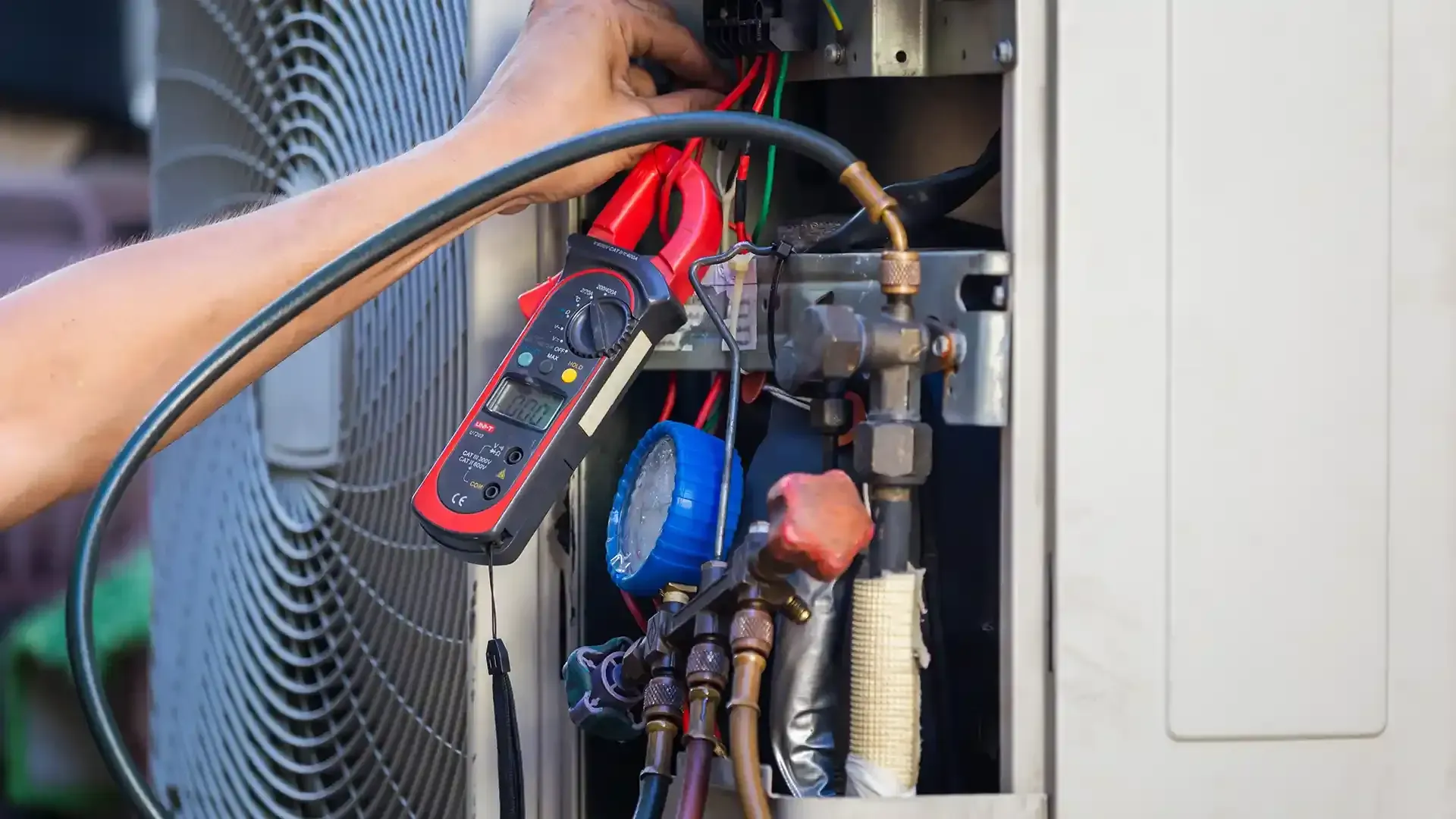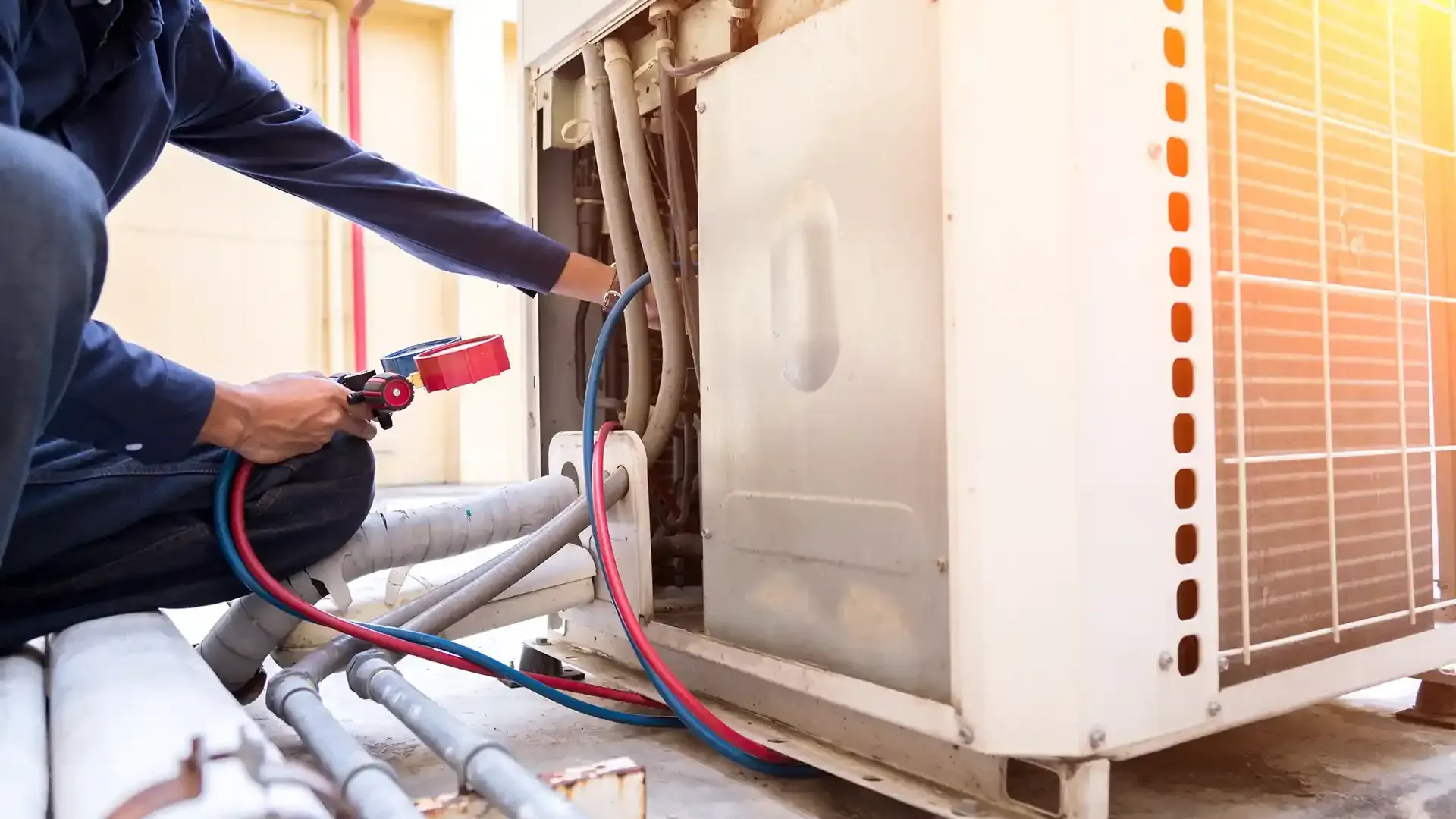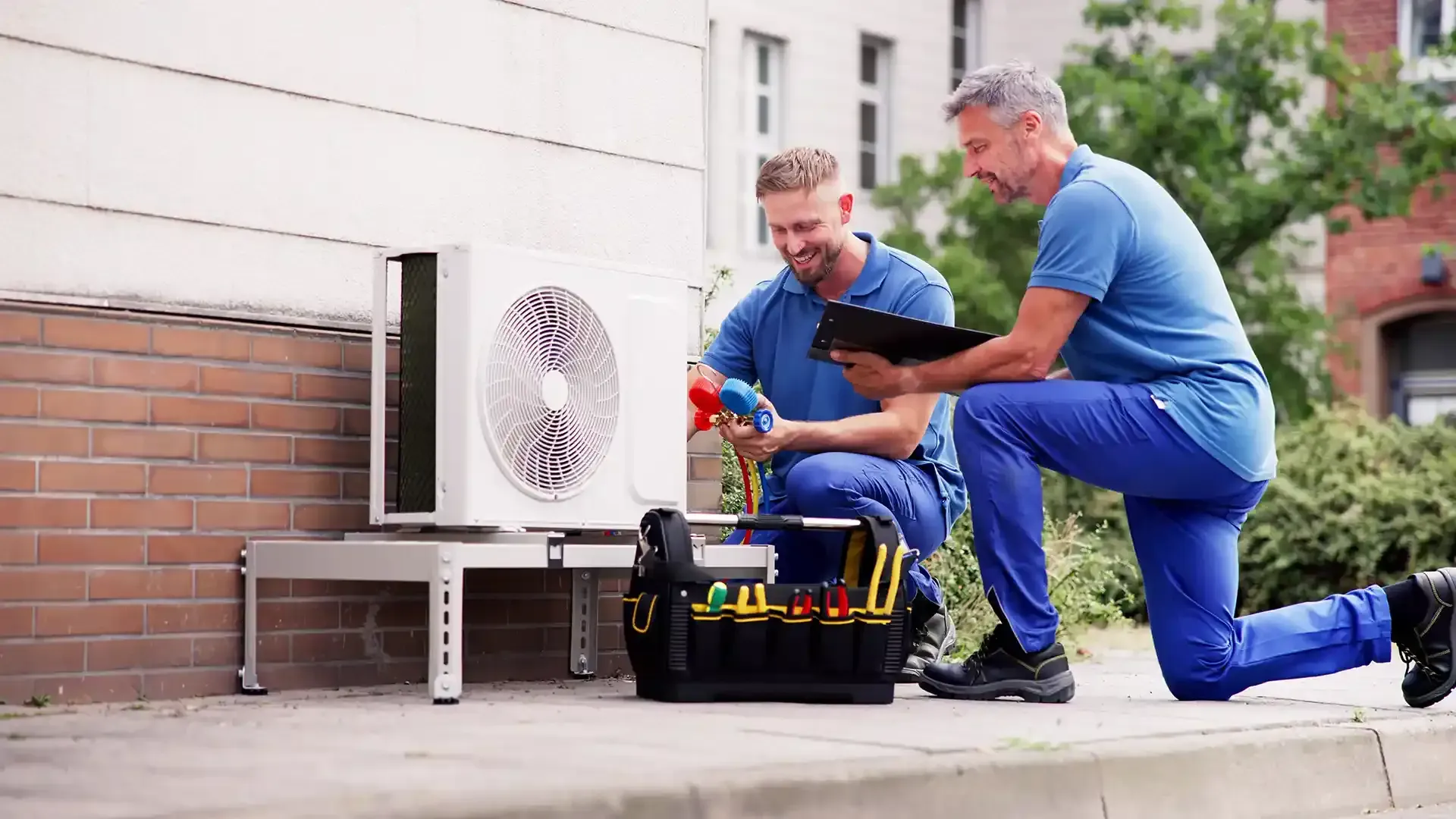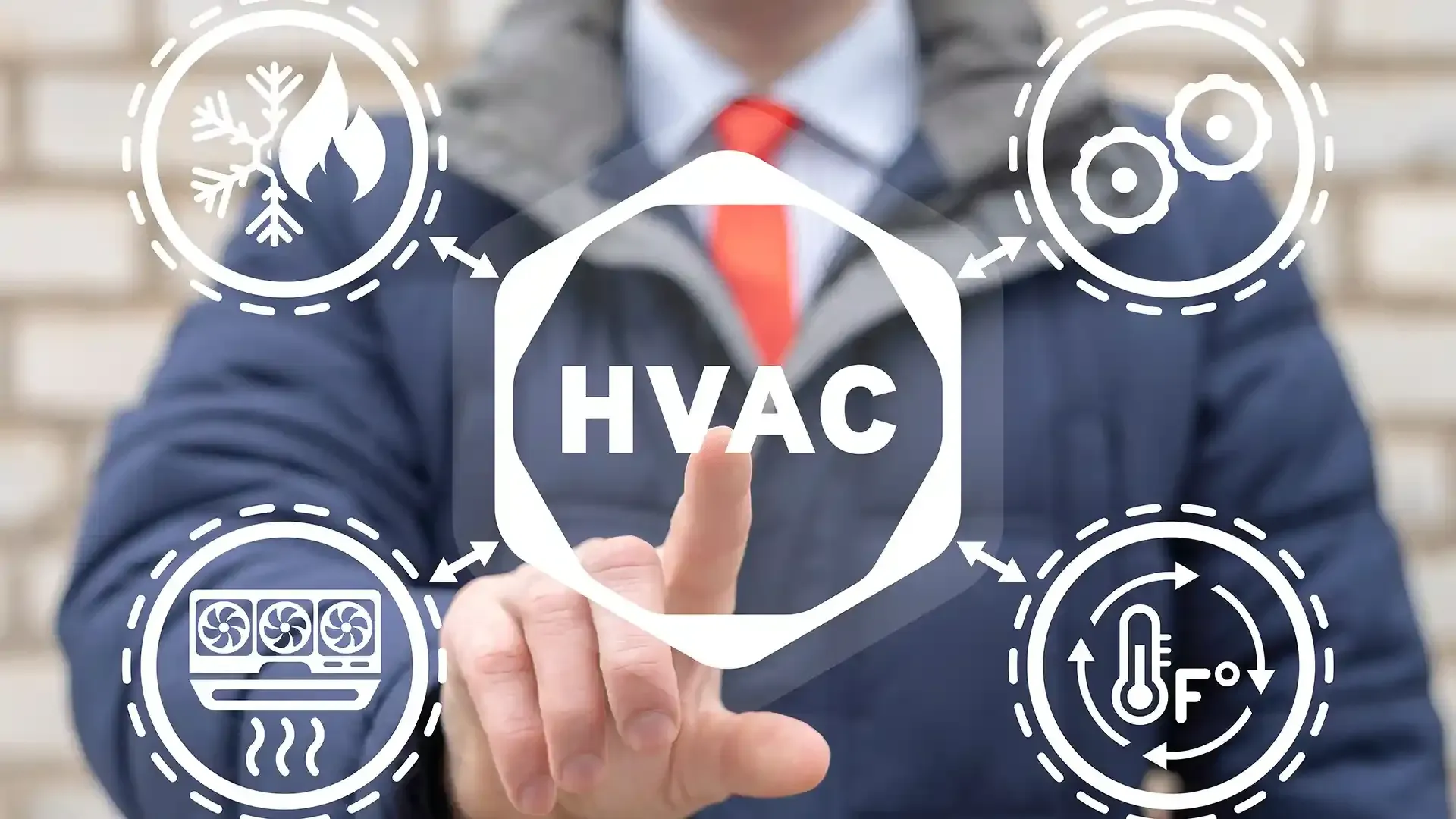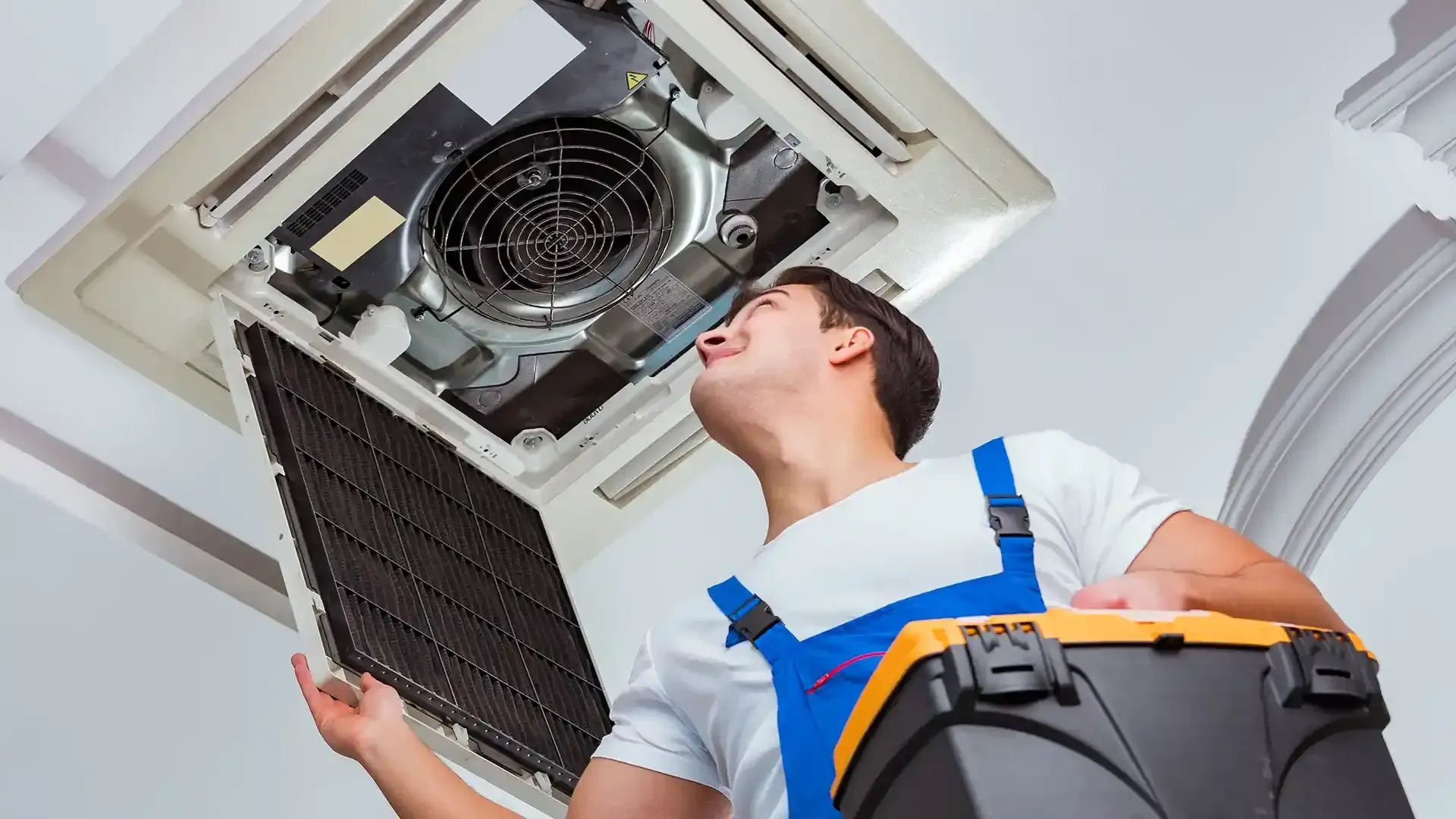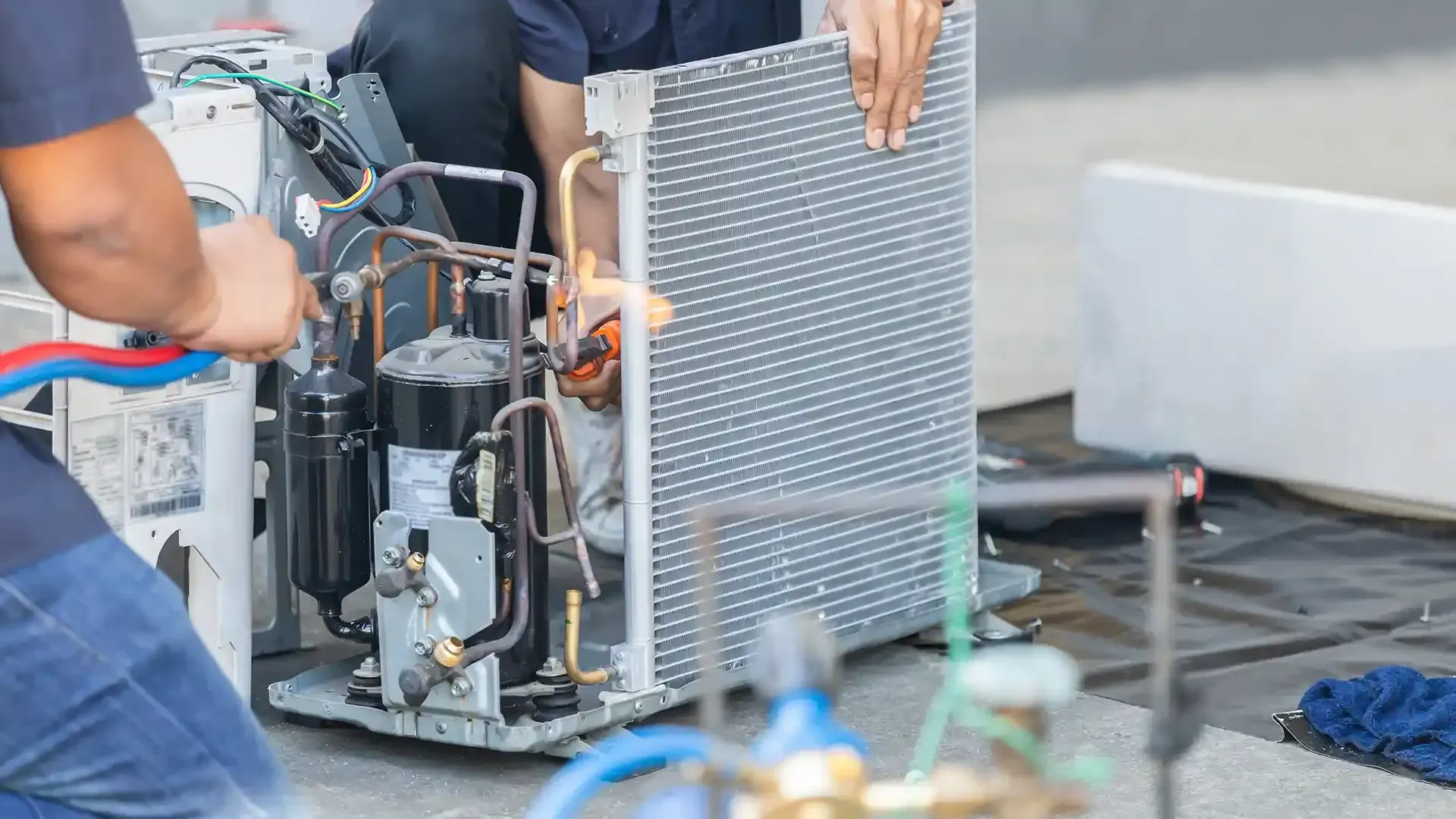When Was HVAC Invented? Exploring the History of Modern Climate Control
When Was HVAC Invented? Exploring the History of Modern Climate Control

Climate control plays a crucial role in our daily lives, whether we realize it or not. From keeping us cool during scorching summers to ensuring warmth during cold winters, modern HVAC systems have revolutionized comfort in homes and businesses. But have you ever wondered,
when was HVAC invented, and how did this essential technology evolve? In this blog, we’ll take a deep dive into the history of HVAC, examining its roots, technological advancements, and the key figures who shaped the way we regulate indoor air quality today. By the end, you’ll understand not only the fascinating journey of HVAC but also why it's so important to rely on expert services rather than trying DIY repairs.
Key Takeaways
- HVAC stands for Heating, Ventilation, and Air Conditioning, and its invention has transformed how we experience indoor environments.
- The journey of HVAC spans from early methods of temperature control to the sophisticated systems we use today.
- Willis Carrier is considered the father of modern air conditioning, having developed the first successful air conditioning system in 1902.
- Relying on professional HVAC services ensures optimal performance, safety, and longevity of your systems.
From Concept to Comfort: The History of HVAC Invention
The invention of HVAC (heating, ventilation, and air conditioning) systems revolutionized how we live, providing comfort in homes, offices, and industries worldwide. The origins of HVAC can be traced back to the early 1900s, when pioneers like Willis Carrier, often credited as the "father of modern air conditioning," developed the first modern air conditioning system in 1902 to control humidity in a printing plant. This invention laid the groundwork for the HVAC systems we rely on today. Over the decades, advancements in technology improved the efficiency and functionality of heating and cooling systems, making them more accessible to the average household. Today, HVAC systems are indispensable for maintaining indoor air quality and climate control, supporting a broad range of sectors, from residential comfort to industrial processes. The journey from concept to modern comfort has transformed the way we live and work, creating healthier and more controlled environments everywhere.
The Early Beginnings of Climate Control
Before exploring when HVAC was invented, it’s important to understand how people throughout history attempted to control their indoor environments. Ancient civilizations, for example, used basic forms of heating by circulating warm air through different systems that heated homes and public spaces. While these early attempts were innovative, they lacked the efficiency and precision that modern systems provide.
As technology progressed, innovations in heating and cooling methods began to emerge. In the 17th century, fireplaces became a standard feature in homes, offering a source of heat but very little ventilation. It wasn’t until the late 19th century that we saw real breakthroughs in climate control technology, leading to the modern HVAC systems we rely on today.
The Birth of Modern HVAC: Willis Carrier and His Legacy
The most significant development in the history of climate control happened in
1902, when an engineer named Willis Carrier invented the first air conditioning system. Carrier's groundbreaking invention was created to solve a humidity problem at a printing plant. However, his system did much more than control humidity—it regulated both temperature and air quality.
This moment marked a critical turning point in answering the question, when was HVAC invented. Carrier's invention worked by blowing air over coils filled with cold water, reducing both the temperature and the humidity of the air. His system laid the foundation for modern HVAC technology, and Carrier is now recognized as the father of air conditioning.
The Evolution of HVAC: Key Milestones
Understanding when HVAC was invented helps us appreciate the technology’s evolution. While Carrier’s invention was groundbreaking, HVAC systems continued to develop and improve over time. Here are some key milestones:
1. Early Heating Systems
During the 19th century, central heating systems began to emerge. Steam radiators became common in larger buildings, using coal-fired boilers to generate heat. These systems were efficient for their time but consumed significant amounts of energy and lacked the precision of modern HVAC systems.
2. The Introduction of Air Conditioning in Homes
By the 1930s, air conditioning units began appearing in homes. Initially, they were expensive and bulky, but over the years, air conditioning became more affordable and efficient, ultimately making its way into homes across the world.
3. Energy Efficiency and Environmental Impact
In the 1970s, the energy crisis spurred innovation in energy-efficient HVAC systems. Laws and regulations pushed the industry to reduce energy consumption, leading to the development of smart thermostats, zoned heating, and more environmentally friendly refrigerants. These changes significantly improved the efficiency and environmental impact of HVAC systems, which have come a long way since HVAC was invented.
Why HVAC Matters: Comfort, Health, and Beyond
The history of HVAC is not just about comfort; it also impacts health and well-being. HVAC systems play a vital role in maintaining indoor air quality by filtering out allergens, pollutants, and harmful particles. Proper ventilation is critical in preventing mold growth and ensuring a healthy living environment.
Additionally, regulated indoor temperatures prevent heat-related illnesses during the summer and protect individuals from cold weather in the winter. These systems have become essential to modern life, and the question of when was HVAC invented goes hand in hand with understanding how HVAC continues to improve the quality of life for so many.
DIY HVAC Repairs: The Risks Involved
Although some may be tempted to attempt DIY HVAC repairs, this approach can lead to more harm than good. HVAC systems are complex, and their proper maintenance requires specialized knowledge. Trying to repair a unit without the necessary skills can result in voided warranties, further system damage, or even dangerous issues like gas leaks or faulty electrical connections.
Instead of taking unnecessary risks, it’s always best to hire a professional service, like Plumber Scranton. We provide the expertise and tools needed to address any HVAC issue safely and effectively, ensuring that your system operates efficiently.
Is your HVAC system showing signs of trouble? Don't wait until a minor issue turns into a major problem. Plumber Scranton is ready to assist with all your HVAC needs. Whether it’s regular maintenance or a complete system overhaul, we have the experience and knowledge to ensure your home stays comfortable year-round. Contact us today at 570-243-0180 for reliable service in
Scranton, Pennsylvania. Trust the professionals who understand the intricacies of HVAC technology—after all, knowing when HVAC was invented is just the beginning.
Conclusion
The history of HVAC is a fascinating journey, beginning with early attempts at climate control and culminating in the highly efficient systems we use today. From Willis Carrier’s 1902 invention to modern energy-efficient technologies, HVAC has become an essential part of our daily lives. Understanding when HVAC was invented provides insight into how far we’ve come and why professional maintenance is so important.
Whether you’re experiencing issues with your HVAC system or need regular maintenance, don’t attempt DIY solutions. Contact Plumber Scranton at 570-243-0180 for expert services you can rely on. Our team in Scranton, Pennsylvania, is ready to keep your system running smoothly year-round. Keep your home comfortable by trusting the professionals who know the history—and the future—of HVAC systems.
FAQs
Q: When was HVAC invented?
A: The modern HVAC system was invented in 1902 by Willis Carrier, who designed the first air conditioning system to control humidity and temperature.
Q: Why should I avoid DIY HVAC repairs?
A: HVAC systems are complex, and DIY repairs can lead to further damage, voided warranties, or safety hazards like gas leaks. Hiring a professional ensures safe and effective service.
Q: What does HVAC stand for?
A: HVAC stands for Heating, Ventilation, and Air Conditioning, covering all aspects of regulating indoor environments.
Q: How often should I service my HVAC system?
A: It’s recommended to have your HVAC system serviced at least once a year to ensure optimal performance, but twice yearly is ideal for preventing issues before they arise.
CONTACT US TODAY
Send us a message using form below and we'll get back to you right away!
Contact Us
We will get back to you as soon as possible.
Please try again later.


